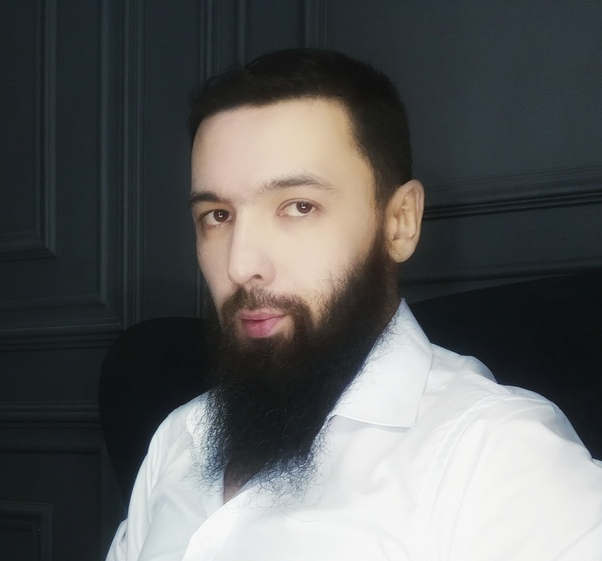
In an age where chronic illness, mental distress, and emotional exhaustion are rising faster than cures can be found, many Muslims are rediscovering an ancient, sacred path to healing: ruqyah. Rooted in the Qur’an and Sunnah, ruqyah is more than a ritual—it is a holistic method of healing that aligns the body, mind, and soul with divine harmony. It offers relief where medicine alone may fall short, particularly for those whose illnesses are wrapped in spiritual causes.
The Crisis of Disconnected Healing
Modern healthcare has achieved extraordinary things, but it has also detached healing from spirituality. Patients are treated like machines: fix the symptom, ignore the soul. But humans are not machines. Our hearts feel. Our souls ache. And when that inner world is wounded—by sin, envy, or unseen forces—physical health inevitably suffers.
This is why ruqyah is not optional for the Muslim who seeks full recovery. It is a divine prescription, offering protection, purification, and power. And when it’s practiced consistently, it can radically improve both chronic and acute conditions, especially when these conditions have spiritual underpinnings.
What Makes Ruqyah Unique?
Ruqyah uses the words of Allah, which contain light, healing, and divine presence. This isn’t symbolic—it’s literal. Allah says in the Qur’an:
“And We send down of the Qur’an that which is a healing and a mercy to those who believe…” (Surah Al-Isra, 17:82)
These words penetrate the barriers of the unseen. They reach the root of illness, whether that root lies in envy, possession, the evil eye, or the consequences of a sinful life.
Ruqyah operates on the following principles:
- Tawheed – affirming Allah’s oneness as the ultimate healer.
- Tawakkul – placing complete trust in Allah’s power.
- Tazkiyah – purifying the self from sin and spiritual pollution.
- Dhikr – fortifying the heart and body through constant remembrance.
- Connection to Revelation – treating the Qur’an not just as guidance but as a living, active force of healing.
The Most Common Health Issues Ruqyah Addresses
Ruqyah is particularly effective in dealing with illnesses that defy normal diagnosis or treatment. These include:
- Fatigue and chronic weakness
- Unexplained infertility
- Sudden weight loss or gain
- Severe migraines with no medical cause
- Insomnia and terrifying dreams
- Unexplained allergies and skin conditions
- Emotional breakdowns and depression without trauma
- Persistent digestive issues without a clear origin
In many such cases, underlying causes are not physical—they are spiritual. And unless the spiritual poison is drawn out, no medication will provide lasting relief.
Ruqyah in Daily Healing: A Practical Routine
One of the strengths of ruqyah is that it requires no middleman. Any Muslim can perform it, for themselves or loved ones, as long as they uphold sincerity and follow authentic methods. Here’s a practical daily healing routine that many have used successfully:
Morning & Evening Protection
- Surah Al-Fatiha – 7 times
- Ayat Al-Kursi – 1 time
- Surah Al-Ikhlas, Al-Falaq, An-Naas – 3 times each
- Blow into cupped hands and rub over body
- Recite du’as of protection from Sahih sources
Ruqyah on Water
- Fill a bottle of water
- Recite the above verses into it
- Blow into the water after reciting
- Drink from it morning and night
- You may also bathe with this water, especially if symptoms are severe
Ruqyah with Olive Oil
- Recite ruqyah verses into pure olive oil
- Apply it to areas of pain, or rub it over the entire body before sleep
- Particularly effective for joint pain, skin rashes, and headaches
Additional Du’as
- “As’alullāhal-‘aẓīma rabbal-‘arshil-‘aẓīmi an yashfiyak” – 7 times
- “Bismillah, alladhi la yadurru ma‘a ismihi shay’un fi al-ard wa la fi as-sama’, wa huwa al-sami’ al-‘alim” – 3 times morning and evening
This routine builds a shield of light around the body. It gradually weakens harmful influences and restores the body’s natural harmony through tawakkul and divine remembrance.
When Illness is a Test
Sometimes, ruqyah doesn’t remove illness immediately. That’s because Allah, in His wisdom, tests His servants through pain. The Prophet Ayub (Job, peace be upon him) suffered for years, yet remained steadfast. He used du’a as his medicine, saying: “Indeed, adversity has touched me, and You are the Most Merciful of the merciful.” (Surah Al-Anbiya, 21:83)
Healing may take time. But ruqyah, even when not delivering instant results, builds resilience, purification, and reward. Every verse recited, every du’a whispered, draws the believer closer to Allah.
Ruqyah and Medical Care: A Balanced Approach
Islam does not reject medicine. The Prophet (pbuh) said, “Seek treatment, O servants of Allah, for Allah has not created a disease but has also created its treatment.”
Ruqyah should be practiced alongside modern treatment—not instead of it. The goal is to heal on both fronts: the physical and the spiritual. And when one ignores the spiritual component, true healing may never arrive.
Final Words
The body is a sacred trust. When it aches, it’s not always due to germs or genes—it may be a message from the soul. Ruqyah answers that message. It treats what pills cannot. It humbles us, connects us to Allah, and reminds us that true healing is from above.
In a world where people chase wellness in all the wrong places, ruqyah offers a return to purity, power, and peace. It is not superstition—it is sacred science, backed by revelation. And for the sincere, it is nothing short of a miracle.

